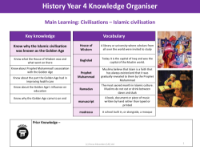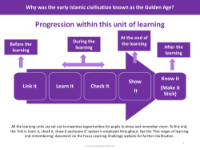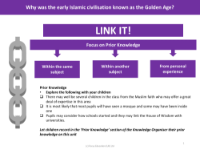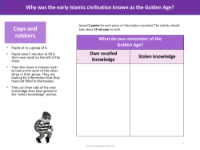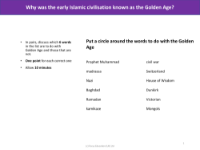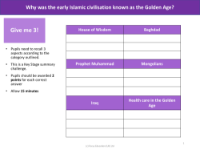Long-term overview - Islamic Civilisation - Year 5
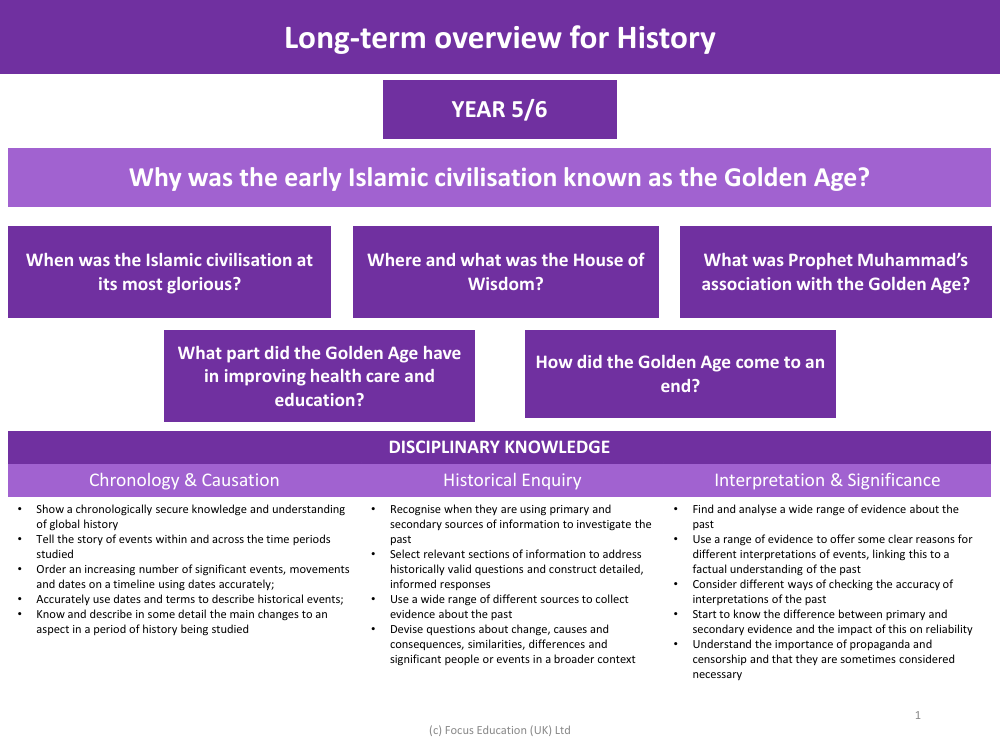
History Resource Description
The early Islamic civilisation is often referred to as the Golden Age due to its remarkable advancements in various fields of knowledge, including science, mathematics, art, and literature. This period was a time of intellectual and cultural prosperity, with scholars from diverse backgrounds contributing to a vibrant and progressive society. The Islamic civilisation reached its zenith between the 8th and 14th centuries, a time when learning and innovation flourished across the Muslim world, from the Middle East to parts of Asia and North Africa.
At the heart of this intellectual movement was the House of Wisdom in Baghdad, a renowned centre for learning that attracted scholars from across the globe. Here, texts from different cultures were translated, studied, and enhanced, leading to significant contributions in various disciplines. During the Golden Age, healthcare and education saw substantial improvements, with the establishment of hospitals, medical schools, and universities. The decline of the Golden Age was a gradual process, influenced by a combination of internal strife, external invasions, and economic factors. Understanding the chronology and causation of these events, as well as interpreting their significance, is crucial for students to gain a secure knowledge of global history and the impact of the Islamic Golden Age on the world.

